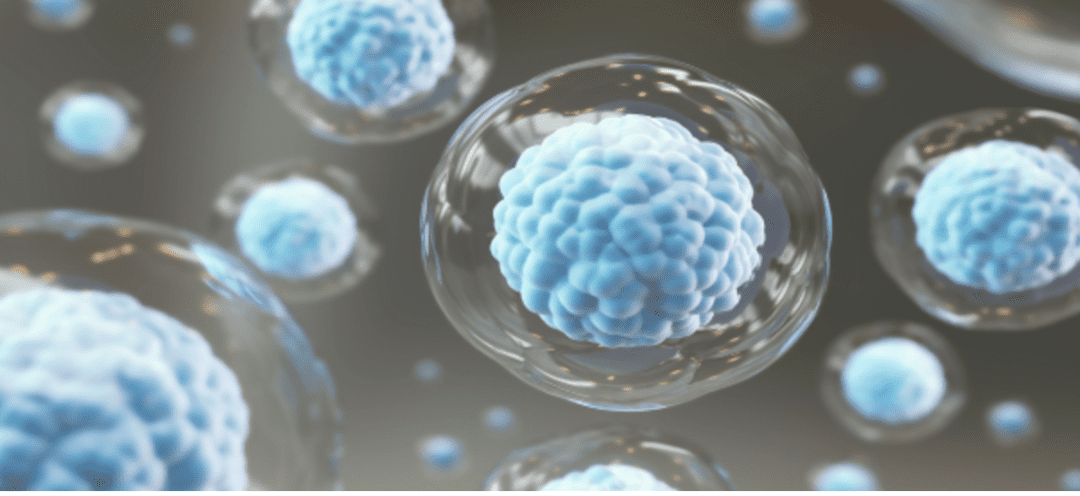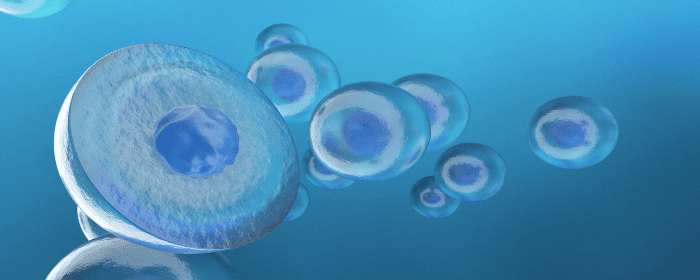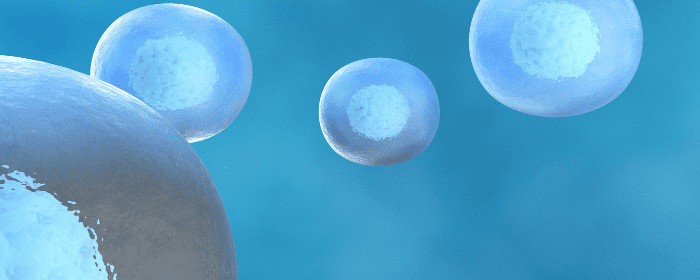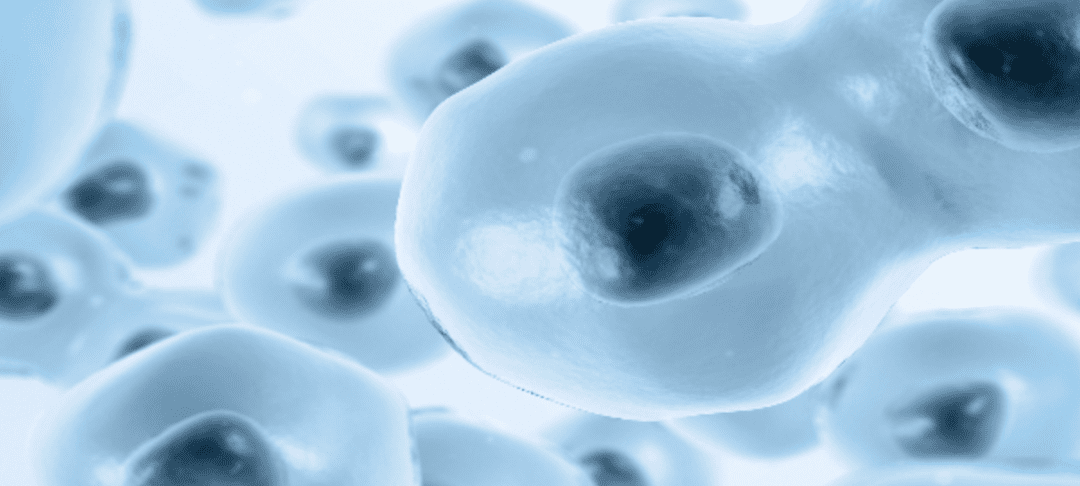
by admin | May 6, 2022 | Stem Cell Therapy, Mesenchymal Stem Cells, Multiple Sclerosis, Stem Cell Research
Multiple sclerosis (MS) is a chronic inflammatory disease that attacks myelin, the protective sheath that covers nerves and causes progressive and serious communication issues between the brain, central nervous system, and the rest of the body[1].
Currently, it’s estimated that over 2.3 million people worldwide, and over one million people in the US have a diagnosis of MS[2].
While there have been significant improvements in treatments designed to stabilize, delay, and even improve symptoms of MS, new and more effective treatments are needed to improve the long-term outcome associated with the condition.
One area currently being investigated as a potential therapeutic option for treating MS is the use of regenerative medicine, also known as stem cell therapy, and specifically treatment using mesenchymal stem cells (MSCs).
In this review of evidence from preclinical and clinical studies, Gugliandolo et al. examine studies involving the use of MSCs or their derivatives in vivo models of MS and patients affected by MS. The authors also examine and discuss the feasibility of autologous MSCs therapy for MS patients.
Specifically, and when assessed in terms of effectiveness when treating MS, the therapeutic potential of MSCs was associated with their differentiation capacity and paracrine effects, their ability to differentiate toward oligodendrocytes and express oligodendrocyte progenitor cell (OPC) markers, and their capacity for homing (moving towards the damaged area following chemical gradients).
As part of this review, the authors also examined the effectiveness of various sources of MSC in MS models, these sources included bone marrow MSCs (BM-MSCs), adipose tissue-derived MSCs (AD-MSCs), periodontal ligament stem cells (PDLSCs), skin-derived MSCs (S-MSCs), Wharton’s jelly-derived MSCs (WJ-MSCs), human umbilical cord MSCs (UCMSC), human amnion mesenchymal cells (AMCs), placental derived MSCs (PMSCs), and decidua derived MSCs (DMSCs). According to the research reviewed by Gugliandolo et al., all MSCs, regardless of where they were harvested from, demonstrated beneficial effects in the therapeutic treatment of MS.
Specifically, the results demonstrated that MSCs were able to produce some form of protective effects in reducing inflammatory cell infiltration, disease score, demyelination, and blood-brain barrier disruption.
A review of 29 phase 1 or 2 clinical trials registered on clinicaltrials.gov demonstrated that MSCs, regardless of the type and method of administration, demonstrated to be safe and absent of severe adverse effects with the majority demonstrating measurable improvements when used in MS patients.
While clinical trials demonstrated the safety of administration of MSC in MS patients, the authors were particularly interested in learning if autologous MSC transplantation presented some advantages over heterologous administration.
The authors of this review found that samples obtained from healthy controls and MS patients showed similar features, indicating the possibility of autologous stem cell therapy in MS patients. However, other studies found that MSCs obtained from MS patients exhibited a different transcriptional pattern and fewer immunosuppressive functions compared to healthy donor MSCs.
Gugliandolo et al. point out that limits to these experimental studies include the use of animals of a single gender, given that sex-dependent differences exist and the use of different MS models, different number of transplanted cells, different MSCs sources, and routes of administration. These limitations make it difficult to define the optimal treatment in terms of cell type, dose, and administration conditions.
The authors conclude that clinical trials demonstrate the safety and feasibility of MSCs treatment, and also some improvements, but more data on larger cohorts are required to establish their efficacy. Considering the controversial results pertaining to the features of MSCs derived from MS patients, the authors also call for additional research in order to conclusively determine the safety and efficacy of autologous MSCs therapy in MS patients.
Source: “Mesenchymal Stem Cells in Multiple Sclerosis – NCBI.” 17 Nov. 2020, https://www.ncbi.nlm.nih.gov/pmc/articles/PMC7698327/.
[1] “Multiple sclerosis – Symptoms and causes – Mayo Clinic.” 7 Jan. 2022, https://www.mayoclinic.org/diseases-conditions/multiple-sclerosis/symptoms-causes/syc-20350269.
[2] “Understanding MS | National Multiple Sclerosis Society.” https://www.nationalmssociety.org/What-is-MS/MS-FAQ-s.

by Stemedix | Apr 11, 2022 | Parkinson's Disease, Mesenchymal Stem Cells, Stem Cell Therapy
Regenerative medicine, also known as stem cell therapy, is emerging as a viable treatment for Parkinson’s disease as clinical trials move through the FDA approval process. Patients in clinical trials see positive results from mesenchymal stem cell therapy for Parkinson’s Disease.
What Is Parkinson’s Disease?
Parkinson’s disease is a progressive, neurodegenerative condition. It occurs when dopamine-producing brain cells stop working or die. Dopamine’s role in the body is to send messages between nerve cells or from nerve cells to muscle cells, affecting the body’s physical and mental functions.
Symptoms of Parkinson’s start gradually, and the disease worsens over time. Early symptoms include tremors in the hands, rigidity, and slowness of movement. Patients with Parkinson’s also experience difficulty with balance, and eventually, with speech, writing, and automatic muscle movement such as blinking.
While there’s currently no cure for Parkinson’s, there are medications that patients can take to manage symptoms. Some symptoms are also relieved from surgery to regulate specific brain areas.
Patients with Parkinson’s disease experience a progressive decline in their ability to function, with treatments only offering some relief. The emergence of mesenchymal stem cell therapy as an option to reverse the damage and halt the progression of Parkinson’s disease is an exciting development.
What Are Mesenchymal Stem Cells?
Stem cells are considered to be the building blocks of cells. All specialized cells in the body come from stem cells. When stem cells divide, they either produce more stem cells, called daughter cells, or differentiate into specialized cells, such as bone, blood, or brain cells.
Mesenchymal stem cells (MSCs) are adult stem cells commonly found in bone marrow. They also exist in adipose (fat), umbilical cord tissue, amniotic fluid, and other locations. MSCs remain dormant in the bone marrow until they’re needed to facilitate healing in the body.
MSCs differentiate into:
- Bone cells
- Muscle cells
- Skin cells
- Cartilage
- Neural cells
- Corneal cells
MSCs are present throughout your life, but they age as the body ages, making them less effective and concentrated over time.
How Can Mesenchymal Stem Cells Benefit Those with Parkinson’s Disease?
In recent clinical trials using mesenchymal stem cells on Parkinson’s patients, the cells significantly improved patients’ symptoms, including facial expressions, gait, and rigidity or “freezing” episodes. Some of the patients in this study substantially reduced their dosages of medicines used to control Parkinson’s symptoms.
In a 2005 study, researchers determined that stem cells may be capable of differentiating into dopamine neurons, which are damaged or destroyed with Parkinson’s.
While the true potential of mesenchymal stem cell benefits in Parkinson’s patients is still being investigated, there is reason to believe that patients with the neurodegenerative condition could experience a significant improvement in their quality of life with stem cell therapy. If you are interested in learning more about Mesenchymal Stem Cell Therapy for Parkinson’s Disease, contact us today at Stemedix!

by admin | Apr 1, 2022 | Stem Cell Therapy, Adipose, Mesenchymal Stem Cells, Musculoskeletal, Wharton's Jelly
Articular cartilage, found on the surface of most musculoskeletal joints, distributes and transfers forces between bones and joints, provides a smooth surface for joint mobility, and plays an important role in human mobility.
However, articular cartilage is also easily susceptible to damage, but difficult to repair itself on its own (primarily due to the fact it is mostly avascular). Over time, the inability of articular cartilage to repair itself leads to progressive joint pain, disfigurement, movement disorders, and ultimately osteoarthritis.
The CDC estimates that nearly 33 million Americans are currently affected by osteoarthritis, most often in the form of pain, stiffness, decreased mobility and range of motion, and swelling in the joints[1].
Current treatment methods, including microfracture technology, autologous or allogeneic cartilage transplantation, and autologous chondrocyte implantation (ACI) have demonstrated the ability to repair and regenerate fibrous cartilage, but not articular cartilage required for smooth, fluid, natural mobility.
To address this issue, recent research has focused on the efficacy of stem cells, and specifically mesenchymal stem cells (MSCs) found in bone marrow, adipose tissue, synovial membrane, and umbilical cord Wharton’s jelly, as potential therapeutic treatments for regeneration of articular cartilage. MSCs are particularly of interest due to their demonstrated abilities of self-renewal, multi-differentiation, and immunoregulation.
While the use of MSCs has demonstrated tremendous potential in the field of regenerative therapy, one notable drawback continues to be unstable or suboptimal results resulting from the heterogeneity of various mesenchymal stem cells.
Specifically, the stability and efficacy of MSCs appear to differ based on a number of factors, including the donor, the tissue source, and their ability for proliferation, differentiation, and immunoregulation.
For example, some of the key heterological differences highlighted in this review include the efficacy of MSCs based on donor’s age (with younger donors providing higher quality MSCs), Wharton’s Jelly MSCs showing greater prospects for application in cartilage regeneration than other MSCs, and differences within specific MSC subpopulations.
The authors of this review acknowledge the potential of MSCs in repairing arterial cartilage, but also point out that there needs to be a deeper understanding of the heterogeneity of various MSCs in order to improve the efficiency of MSC-based therapies designed to repair arterial cartilage. In addition, the authors also call for greater standardization in MSC isolation and harvesting methods among laboratories in order to provide better consistency with respect to results obtained from studies using MSCs.
Source: “Heterogeneity of mesenchymal stem cells in cartilage regeneration.” 19 Mar. 2021, https://www.nature.com/articles/s41536-021-00122-6?elqTrackId=5517bd20493b470cb34fd0e8bc1f6ef9.
[1] “Osteoarthritis (OA) | Arthritis | CDC.” https://www.cdc.gov/arthritis/basics/osteoarthritis.htm.

by admin | Mar 25, 2022 | Mesenchymal Stem Cells, Neurodegenerative Diseases, Stem Cell Research, Stem Cell Therapy
Neurodegenerative conditions such as Alzheimer’s disease (AD), Parkinson’s disease (PD), and amyotrophic lateral sclerosis (ALS) occur when neuron populations begin to diminish. There is currently no cure for these types of diseases, though clinical trials to explore various treatment options are ongoing. In particular, regenerative medicine, also known as stem cell therapy, is being heavily researched and has shown remarkable progress in controlling these conditions.
Types of Stem Cells
Stem cells serve as the foundation for every tissue and organ throughout the body. They are unspecialized but have the incredible ability to differentiate into virtually any cell type, as well as the power to self-renew.
Neurodegenerative conditions are characterized by neurons that progressively lose their function and structure, and eventually die off. Because stem cells are able to differentiate into multiple cell types, researchers have begun exploring whether they could replace or repair damaged neurons to control the progression of, or potentially even reverse the damage done by, these illnesses. Existing treatment options are limited, but many researchers are optimistic about stem cells’ potential.
Not all stem cells are the same. Here are the various types, some of which show more efficacy as a treatment for neurodegenerative disease than others:
- Tissue-specific stem cells: These somewhat specialized stem cells can generate multiple organ-specific cells and are typically located in areas of the body that can self-replenish, such as the skin and blood.
- Embryonic stem cells (ESCs): Located in blastocysts, ESCs are especially promising in neurodegenerative applications. Yet, they do pose some risks, including the risk of rejection. Due to their ability to differentiate into neurons, however, they continue to be studied as a potential therapy.
- Induced Pluripotent Stem Cells (iPSCs): iPSCs are artificially derived from adult cells and programmed back to pluripotency, thereby allowing for an unlimited source of any cell type. While they are widely used for developing medications and disease modeling, further research must be done to refine the reprogramming process.
- Mesenchymal Stem Cells (MSCs): MSCs can differentiate into several types of cells. Their self-renewal capabilities are far-reaching, making them an ideal candidate for therapies involving tissue repair. They may also be leveraged for cell transplantation in the treatment of neurodegenerative diseases.
- Neural Stem Cells (NSCs): NSCs are derived from specific areas of the brain and are therefore specialized cells. They, too, are self-renewing and multipotent.
Types of Neurodegenerative Conditions Regenerative Medicine can Help Manage:
While researchers are uncovering new findings on how stem cells can treat neurodegenerative conditions nearly every day, there has already been progress. Here are some of the conditions stem cell therapy has been used to manage:
- Parkinson’s Disease (PD): One hallmark characteristic of PD is the decline of dopamine, caused by the destruction of dopamine-producing brain cells. As dopamine decreases, symptoms such as muscle tremors, challenges with movement, and difficulty thinking arise. Now, researchers have found that stem-cell-derived dopaminergic neurons — in particular, those created through ESCs and iPSCs — could hold success in replacing the destroyed brain cells in individuals with PD.
- Alzheimer’s Disease: Through the use of stem cell therapy, researchers at Columbia University have refined the protocol for a unique process of converting skin cells into brain cells. This option streamlines the process of creating neurons to replace those which have become damaged by Alzheimer’s disease. In their research, the cells were able to receive signals just as normal neurons would.
- ALS: ALS has proven remarkably challenging to study, as there are many potential causes and therapies may therefore only be effective on specific patient populations. Moreover, the motor neurons, which are directly impacted by the condition, couldn’t be acquired in large enough numbers to study. Now, however, Harvard researchers have been able to derive mature cells that can be manipulated back into stem cells from ALS patients, opening up new doors for studying potential therapies to treat the condition.
While there is more ground to cover before stem cell therapy for neurodegenerative conditions can become mainstream, promising research is consistently being published. Moving forward, it’s likely that stem cells will hold the answer to viable management options for these and other challenging conditions.

by Stemedix | Mar 7, 2022 | Multiple Sclerosis, Stem Cell Therapy
As one of the most common neurodegenerative disorders, multiple sclerosis (MS) affects millions of patients. This progressive condition can cause everything from muscle weakness to double vision. Regenerative medicine is showing new potential when it comes to treating multiple sclerosis. Read on to learn more about how stem cells can help patients with MS.
What Happens During Multiple Sclerosis Flares?
In multiple sclerosis, a person’s immune system attacks the myelin of their nerve fibers. Myelin is a material that forms a protective layer, or sheath, around nerve fibers and shields them from damage. When the immune system attacks the myelin sheath, it causes inflammation and lesions that make it difficult for the brain to send signals throughout the rest of the body.
While there is no cure for multiple sclerosis, patients may undergo a wide variety of treatments to manage their symptoms. This may include physical therapy, immunosuppressants, steroids, and beta-blockers. Regenerative medicine, also known as stem cell therapy, is also showing great potential when it comes to managing multiple sclerosis and its symptoms.
Stem Cells and Multiple Sclerosis
Regenerative medicine works within the body at a cellular level, stimulating a healing response that can address certain symptoms of multiple sclerosis. Various types of stem cells have the potential to regenerate lost or damaged cells, including those that form the myelin sheath. This has the potential to improve the lives of MS patients, whose myelin layers have been damaged by inflammation.
The following are three types of stem cells that can be used to treat multiple sclerosis:
Haematopoietic Stem Cells (HSCs)
Haematopoietic stem cells are adult stem cells found in the blood and bone marrow. These cells play an active role in immune function.
Mesenchymal Stem Cells (MSCs)
Mesenchymal stem cells (MSCs) are present in umbilical cords and fat tissue. These cells help promote the function of other stem cells throughout the body.
Neural Stem Cells (NSCs)
Neural stem cells are specialized stem cells that can repair the myelin in the brain. These cells can come from other stem cells, such as mesenchymal stem cells.
How Can Stem Cell Therapy Manage MS Symptoms?
Stem cell therapy can modulate the immune system, temporarily disabling the abnormal attacks on myelin tissue. When the immune system is no longer destroying healthy myelin cells surrounding nerve fibers, it can help slow the progression of multiple sclerosis conditions and potentially improve symptoms.
When patients receive stem cell therapy to treat their multiple sclerosis, they may experience some of the following benefits:
- Reduction of muscle spasticity
- Increased energy
- Improved balance
- Enhanced concentration
- Decrease in visual disturbances
- Improved range of motion
- Reduction of muscle pain
While stem cell therapy has the potential to manage MS symptoms, it is still considered an experimental treatment and can not guarantee a cure. Although stem cell therapy is not FDA approved, there has been research to suggest it is safe and patients result in positive outcomes. Patients must have realistic expectations when choosing regenerative medicine for multiple sclerosis but it may be an option worth exploring. If you are interested in learning more about how Stem cells can help patients with MS, contact us today and speak with a care coordinator.






 St. Petersburg, Florida
St. Petersburg, Florida
